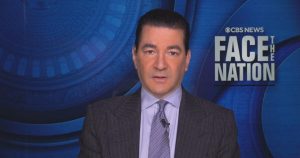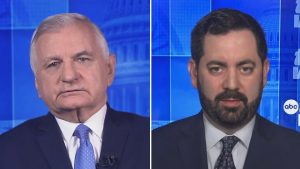The Internal Revenue Service Begins Major Layoffs Amid Tax Season
The Internal Revenue Service (IRS) has initiated a significant round of layoffs, affecting more than 6,000 new and newly promoted employees across the United States. This move is part of President Donald Trump’s broader effort to reduce the federal workforce, a strategy that has raised concerns about its potential impact on the current tax filing season. The layoffs, which began on Thursday, primarily target probationary employees outside the Washington, D.C., area, with offices in Texas, Florida, Pennsylvania, Georgia, Tennessee, New York, and other states being heavily affected. Sources close to the matter revealed that over 500 terminations were expected in Texas, over 600 in New York, and hundreds more in other states. The timing of these layoffs, occurring during the peak of tax season, has sparked fears about delays in processing tax returns and issuing refunds.
The Impact on Tax Season and IRS Operations
As millions of Americans file their taxes and await refunds, the IRS layoffs have cast a shadow over the agency’s ability to manage the influx of tax returns efficiently. While the IRS initially reviewed a list of approximately 15,000 probationary employees to ensure that no one directly involved in the filing season would be laid off, concerns remain about the indirect consequences. Teams affected by the layoffs include the small business/self-employed unit, clerks in various divisions, the appeals team responsible for resolving taxpayer disputes without litigation, and the Taxpayer Advocate Service, which protects taxpayer rights and assists those facing financial hardships. The loss of these employees could strain the IRS’s capacity to handle the complexities of tax season, leading to delays, slower refunds, and longer wait times for customer service.
Expert Concerns and the Delicate Nature of Tax Season
Experts and former IRS officials have expressed strong reservations about the timing and potential consequences of these layoffs. A former IRS commissioner described the decision to reduce the workforce during tax season as "unrealistic" and "extremely risky," emphasizing that maintaining stability during this period has historically been a top priority. The former commissioner likened tax season to an assembly line, where any disruption to the workforce could lead to breakdowns in processing tax forms, correspondence, and refunds. Vanessa Williamson, a senior fellow at the Tax Policy Center, warned that the layoffs could result in slower refunds, longer hold times, and dropped calls, significantly impacting customer service.
Morale and Resistance Within the IRS
The layoffs have also taken a toll on morale within the IRS, with one agency official describing it as "low." Remaining employees are expected to face increased workloads, which could lead to internal protests and further disrupt the filing season. A union representing IRS employees has already distributed guidance to its members, advising them on steps to take if they receive a termination letter. This includes printing and securing documents related to their employment, such as pay stubs and performance appraisals. The mood within the agency reflects a broader sense of uncertainty and concern about the future of the IRS under the current administration.
Long-Term Implications and Political Objectives
The IRS layoffs are part of a larger political agenda by President Trump to shrink the federal bureaucracy. Senior administration officials have hinted at further reductions after the tax season, with some even advocating for the abolition of the IRS altogether. Such a move would require congressional approval and faces significant legal and logistical hurdles. Meanwhile, the IRS cuts come just two years after the agency received substantial funding from the 2022 Inflation Reduction Act, which had helped improve customer service and reduce processing times. Experts warn that reducing the IRS workforce could also hinder the agency’s ability to address the tax gap, estimated at $606 billion in unpaid taxes, and undermine its capacity to enforce tax laws effectively.
A Broader Debate on Government Spending and Taxation
The IRS layoffs have sparked a broader debate about government spending, taxation, and the role of the federal workforce. While President Trump and his allies argue that reducing the IRS is a step toward eliminating waste and fraud, critics argue that such cuts will ultimately harm taxpayers and weaken the government’s ability to collect revenue. The proposal to abolish the IRS and replace it with an "External Revenue Agency" to collect tariffs on foreign imports has drawn skepticism from experts, who question its feasibility and effectiveness. As the IRS navigates these changes, the impact on taxpayers and the future of tax collection remains uncertain.















